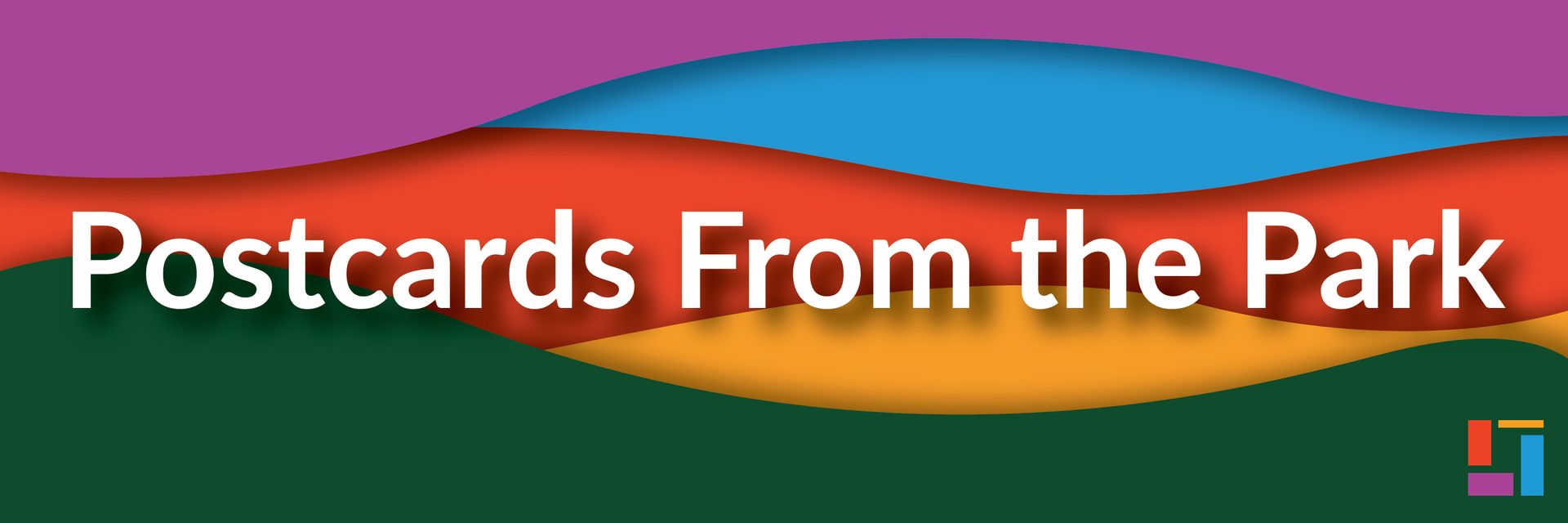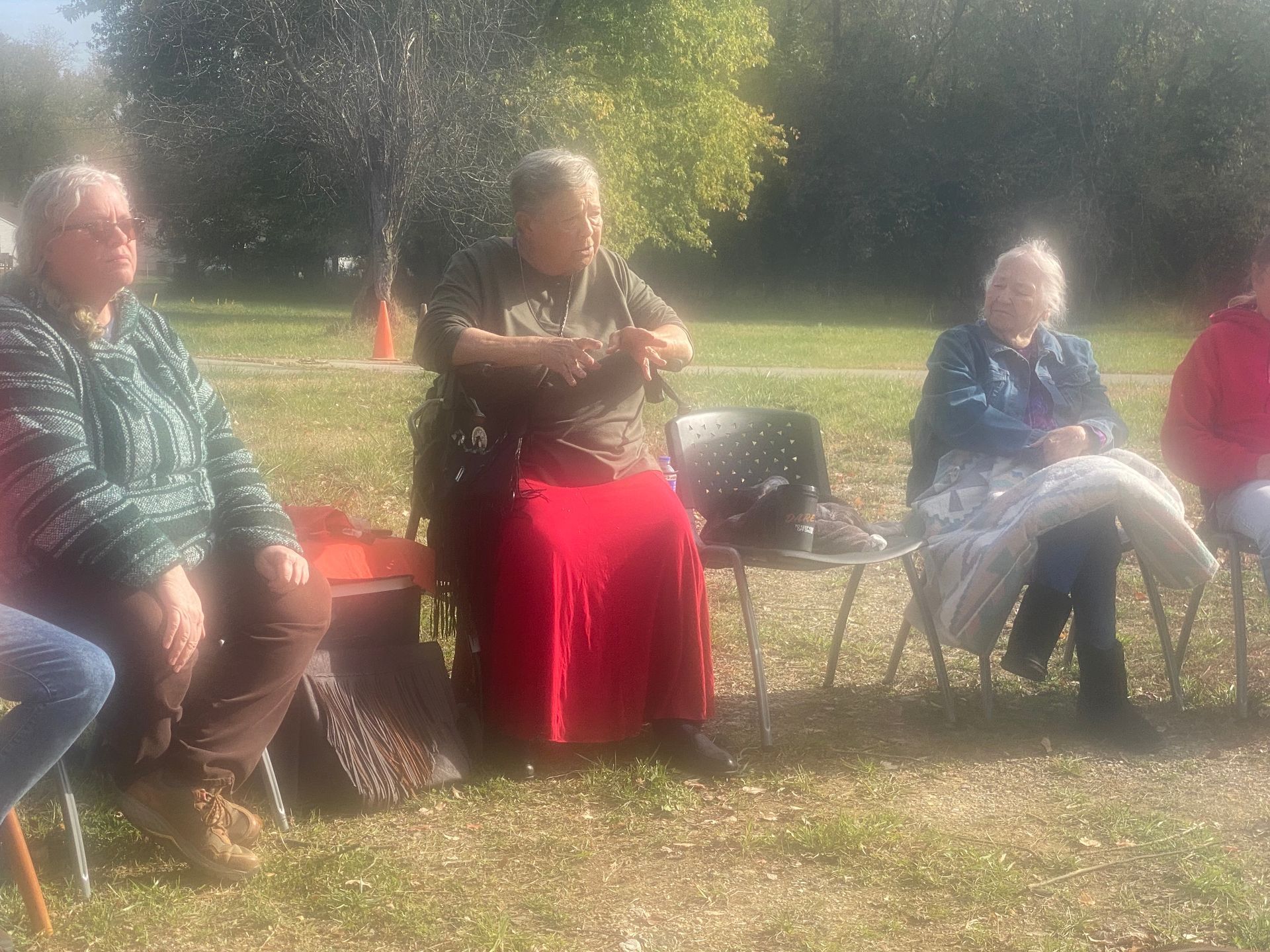
Exploring Indigenous history at Origin Park
A morning chat with C.J. Wright

Last weekend we were honored to host Rev. C.J. Wright and 22 participants for as program that included an exploration of Origin Park’s Indigenous history and a traditional Indigenous talking circle. For the benefit of those who couldn’t attend this restorative event, Origin Park’s Kristin Faurest sat down with Rev. Wright to ask about her relationship with the land and how her spirituality informs everyday action.
KF: What are some of your daily rituals?
CJW: One of the first things that I do is go outside and offer up prayers of gratitude and prayers asking for openness and guidance. The prayers of gratitude are basically for everything the Creator has provided. Gratitude to the plants, nature, the rain we’ve had in the last few days. Prayers for others. I like to touch nature. I’ve got all kinds of flowers and plants. I raise and release monarch butterflies, so I have a lot of milkweed and I’ll go around and touch the leaf and the bloom and tell the plant how beautiful it is. Do I know for sure they understand? No. But I know that science has proven that good energy around plants makes a difference to the plants. There’s a lot that Indigenous people have known for centuries that science is just now catching up to.
I like to smudge with sage, usually, and sometimes bear root (Ligusticum porteri), a plant indigenous to the Colorado mountains. My Cherokee elder gifted me with bear root before she crossed over. She said “this is your medicine. Learn it and use it.” I see everything in nature as kinship. If God created the plants and the trees and the fish and the winged ones and God created me, then we must be related. There’s a lot we can learn from nature. We see everything in nature as relatives and teachers, and if we stop and pay attention and are present, we’ll learn a lot.
KF:
In her book Cherokee Women: Gender and Culture Change, 1700–1835, historian Theda Perdue wrote of the Cherokee historical beliefs that “the Cherokee did not separate spiritual and physical realms but regarded them as one, and they practiced their religion in a host of private daily observances as well as in public ceremonies." Could you speak to that and how it relates to your spiritual practice?
CJW: My heritage is Cherokee through my mother and both my grandparents on my mother’s side. It’s English and Irish through my father. No matter where we come from in the world, at some point we all came from an Indigenous culture, meaning that if we go back far enough in our ancestry we’re going to find Indigenous people. I was raised a Methodist and spent time in the Episcopal church. I love going to different spiritual institutions, I love going to a mosque or a synagogue. We’re all looking at the same Creator, we just practice differently. Most Indigenous people won’t call their spiritual walk a religion. For me it’s not a religion, it’s a way of life – both the Indigenous and the Christian. And because of that walk I have become a much better Christian. There are lots of names for God in different cultures, yet we’re still looking in the same place. Even if you put all those perspectives together, we’re still only getting a glimpse of what that great mystery is.
KF: You direct the Rainbow Spiritual Education Center, Inc. (RSEC) the mission of which is to facilitate holistic spiritual awareness and wellness through education and celebration, utilizing wisdom from Christian teachings, Native American spirituality, and Buddhism. How do you weave those traditions together?
CJW: We are a holistic organization that is about respect for self, creator, and environment. People need to have a place where they can comfortably learn who they are spiritually without fitting anyone else’s format. There are so many people who have been damaged and bruised by well-meaning people in churches who say you must believe this, or it isn’t the place for you. Everything we teach goes back to ancient or near ancient times, and if we can celebrate on common ground as an integrated group and respect differences, then we’re going to be able to speak to one another. That is as important today as it was 23 years ago when we started: to find a way to sit and be in community together. One of the things the Rainbow Center did years back was work with the Unity Church to start a monthly program where a spiritual leader from a local faith community would come and teach about their faith tradition. The Muslim community came during Ramadan so of course they couldn’t eat until it got dark, but they brought enough food for everyone. These kinds of connections we’re able to make when we can get out of our boxes can be such a blessing.
KF: You provide spiritual counseling to people in disaster situations. With war and the climate and biodiversity crises, disaster seems to be more and more normal in the daily news. What kind of spiritual support do crisis victims need now?
CJW: Meet people where they are. Give them a place to vent and then help them find some kind of level of peace. A lot of times when people are in a disaster situation or traumatic experience, they’re not thinking at all: they’re in a fight or flight situation and they’re going to do what they must for survival. First, make sure they’re safe, uninjured, and have food and water. You can’t get to anything spiritual and cognitive until you get those basic needs taken care of. One of the most important things for a person in crisis is being heard and being given the chance to tell the story of what they went through. And letting them know that most people would respond the same way helps them know they’re not alone. That’s very important for people to understand. Every question that you ask of a person who’s been through a traumatic event helps to bring them out of fight or flight and into the cognitive awareness. Once there they can stand up and put one foot in front of the other.
KF: Thank you for being with us, C.J., and we look forward to welcoming you back to the park soon.


